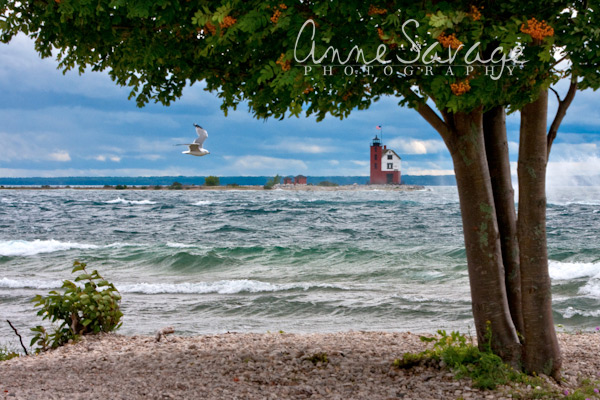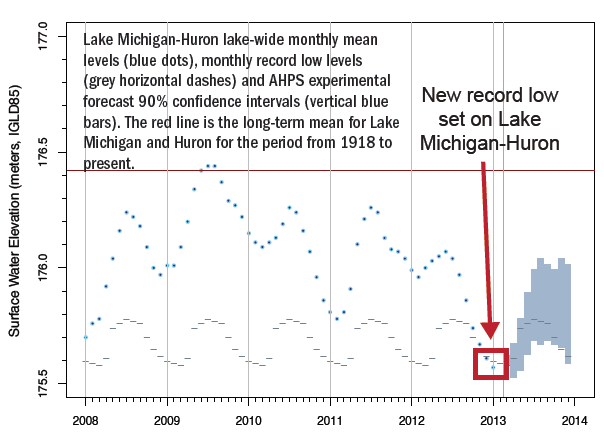At what point does climate change denial become a mental illness?

Photo by Anne C. Savage, special to Eclectablog
The Great Lakes are now at historically low levels. So low, in fact, that Governor Snyder was forced to prevail upon the legislature to pass emergency funding to dredge 58 harbors and bays so that ships and recreational vessels can continue to use them.
Yet, somehow, the corporate-funded climate change deniers still have a voice in what is no longer a debate about the reality of global climate change.
On what felt like one of the first real days of spring so far this year, Michigan’s boating season got a boost when Gov. Rick Snyder signed a bill Wednesday pouring $20.9 million into an emergency dredging program.The money will allow 58 public bays and harbors, used mostly for recreational boating, to be cleared of the sands and sediment that are clogging them and leaving many boats stranded.
“This dredging is critically important in this state. We have the third highest number of registered boats in the nation,” Snyder said.
The dredging is needed to deal with the consequences of record low lake levels in the Great Lakes, especially Lakes Michigan and Huron. The original list cited 49 bays and harbors, but state officials said they are confident that they will have enough money to do all 58 sites.
The dredging will be paid for with $11.5 million in general fund dollars, with the rest coming from the Waterways Commission Trust Fund.
The situation isn’t just bad, it’s historically frightening. Check it out:

[Source: NOAA]
Here’s more:
A 2011 economic impact study paints a grim snapshot: Water levels are currently 2 feet below average — at that level, the study predicts a loss of nearly $850,000 in slip fees at just a handful of ports. The cost to the entire Lake Huron coast could be millions more.Ships carry less; one harbormaster calculated that for each inch of water lost in the Lake Michigan-Huron system, the amount of cargo a ship could leave behind is equivalent to what fits in 200 trac- tor-trailers.
A commercial fishing operation predicted about $25,000 in lost revenue each week, because boats cannot be loaded to capacity without risking getting stuck in sand.
Why is this happening? Simply put, warmer winter temperatures have reduced ice on the Great Lakes:
Why? Great Lakes ice is shrinking.Ice cover has decreased nearly 70% on the five Great Lakes since the early 1970s, according to the National Oceanic and Atmospheric Administration. The five Great Lakes hold 20% of the world’s fresh water and have more than 11,000 miles of shoreline.
Every one of the lakes has endured the winter meltdown:
- Lake Ontario saw the most dramatic decrease with an 88% drop in ice coverage.
- Lake Superior lost 76% of its ice.
- Lake Michigan saw a decrease of 77%.
- Lake Huron’s ice has decreased 62%.
- Lake Erie, the shallowest of the lakes and therefore the first to freeze every year, lost half of its ice cover.
Scientists blame global warming. Hotter days mean warmer water.
But in the case of Lake Superior, which has seen a water-temperature increase of 4 degrees in the past 25 years, the water is warming faster than the air, according to research by the Large Lakes Observatory at the University of Minnesota-Duluth.
“When you step back and look at what’s happening in the Arctic and with the Greenland ice sheet, you realize it’s not just the Great Lakes,” said George Leshkevich of NOAA’s Great Lakes Environmental Research Laboratory. “It’s happening globally.”
The debate about climate change is over. The evidence is all around us and now it’s starting to have a severe economic impact. Perhaps that will be enough to convince the remaining skeptics that it’s long past time to act.
I only hope it’s not too late.



